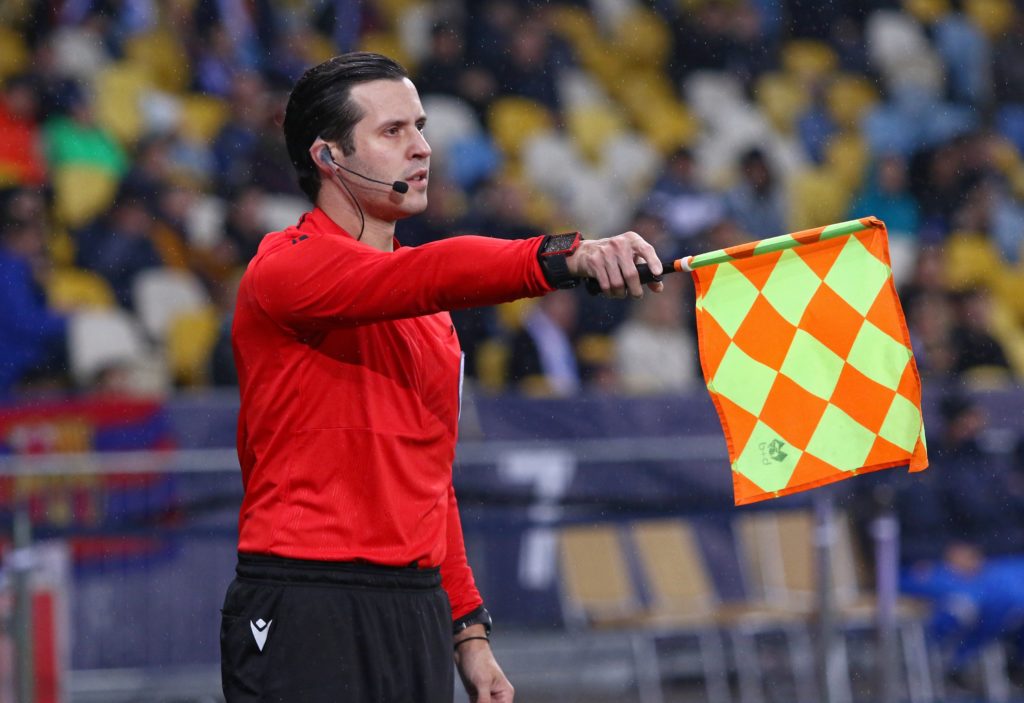The hallmarks of success for a referee are peak performance and consistency.
While many officials have a great game once in a while, it’s performing at your peak on a consistent basis that most referees struggle to achieve.
Being consistent is a hot topic for officials who we’ve talked to over the past couple of years. One Level 6 referee asked for help with being consistent throughout the season:
“How can I be more consistent in games? My performance goes up and down, not just from game to game but also half to half. It is frustrating because I know I have the ability but I just can’t put it together consistently.” – Level 6 Referee
One frustrating component to inconsistency is that you never know which official is going to show up, the referee in the zone or the inconsistent referee.
Some games you feel excited, confident and ready to go and have a great game. Other days, you feel unsure or tired. Your pre-match warm up feels uneasy and anxious. When the game begins, you make one mistake and your match control spirals downwardly.
How you define consistency is important. If you define consistency in unrealistic terms then consistency will feel elusive.
Some misconceptions about consistency include:
- Consistency means perfection. “I can’t make any errors.”
- Consistency means performing top of your game every game. “I must have my ‘A’ game, every game.”
- Consistency means matching your best statistics every game. “I should cover 8 miles in the game.”
Outcomes are not the best judge of performance all the time. The true measure of consistency is how you officiated in terms of management, confidence, and focus.
Keep in mind that players, club officials & spectators have a lot to do with how consistent you may referee. Sometimes you can have a good game personally, but that day a perceived error can make the game difficult to manage.
What is Consistency?
Consistency is about taking your training into games and performing like you know you can. But that doesn’t mean you will perform at your peak or have your best game ever.
Consistency is the ability to perform with confidence, trust, and composure. Without these mental skills, you can’t be consistent.
Consistency is also about being able to perform well when you don’t have your “A” game. Sometimes you might not feel great in the warm up or at the start of the game, but that doesn’t mean you can’t have a decent performance.
How to Improve Consistency:
Define consistency in terms that make sense for you personally. What would consistency look like for you? How will you objectively evaluate your performance according to your definition of consistency?
We know that consistent mental and physical preparation leads to consistent performance. How will you prepare consistently?
Consistency starts well before matchday. You have to prepare your body and mind using your pregame nutrition, hydration, and warm up routine.
Intensity is important too. Think about the level of intensity that you need to perform well. Do you need to feel pumped up or do you need to relax and stay calm? You control your level of consistency.
What about your level of confidence? Do you referee at your best when you go into each game with confidence? You can control your confidence too. You want to enter each game with focus, confidence, trust, and composure.
Bringing the right level of focus is also important. You can’t be consistent if you are distracted or engage in overthinking. Make sure you focus on the important performance cues when you blow the first whistle.
At The Third Team I work individually and in collaboration with different professionals where I have developed workshops and 1-2-1 sessions associated with Resilience and Mental Toughness Development to help referees. The workshops and 1-2-1 sessions are interactive, where referees are encouraged to open up and share their experiences to help themselves and each other.
Feel free to contact me if you’d like to know more about my workshops or 1-2-1 sessions and how I could help you or your officials.
Best Wishes,

Nathan Sherratt
Referee Educator & Managing Director of The Third Team

Nathan Sherratt
Nathan Sherratt, Referee Educator, Resilience Trainer and Managing Director of The Third Team. A Mental Toughness Practitioner based in County Durham, North East England.

